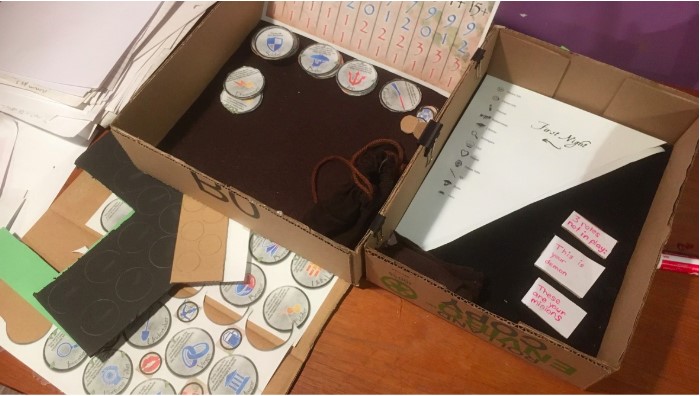A year ago, if you asked me to rank my favourite board game genres, social deduction would be pretty low on the list. Sure, I’d enjoy a round of Secret Hitler or Avalon every once in a while, but I’d always prefer to play a heavier strategy game. I completely changed my mind when I discovered Blood on the Clocktower.
Blood on the Clocktower is a social deduction game with a premise quite similar to Werewolf or Mafia. You and your friends are inhabitants of a town, with secret hidden roles. Most of you have good intentions, but there exists an evil presence within your midst. Each night, one member of the town will be killed, and each day, the town may vote to execute another. If you can find and execute the evil player(s) before the whole town dies, Good wins.
However, upon a deeper exploration of Blood on the Clocktower, several things stand out from its predecessors. In many versions of Werewolf or Mafia, at least some players are boring “villagers” who have no special power. In Clocktower, every player has a unique special ability. In most Werewolf-style games, once you’re killed, you’re out of the game and have to watch from the sidelines. In Clocktower, when you die you lose your ability, but retain one vote that you can use to help execute a “living” player. You still win or lose with your team, and you still have a say in the game, through the power of your final vote.
Another major addition is the possibility of misinformation in the game. An evil character, the Poisoner, can cause good abilities to malfunction and not receive correct information. More dangerous than that is the Drunk, a good character who thinks they are another role, but all their role’s information is incorrect (without them knowing). This exponentially increases the difficulty of the puzzle you’re solving, because now every theory is followed by, “or they could be lying, drunk, or poisoned”.
But now the question arises, “How does getting misinformation without knowing it work? How does the game decide which misinformation to give you?” The answer: The Storyteller. This is a player who is something of a cross between a moderator and a D&D Dungeon Master. They run the game, and control all the misinformation. Instead of an app, you have a real human running the game, so arbitrary choices are now made with intention. The Storyteller’s goal is to create a fun story for the players, so they’ll generally try to help out a team that is losing terribly or make it a bit harder for a team that is running away with the game.
I love being the Storyteller. I get to know everything going on in the game and influence the players with carefully chosen misinformation. Meanwhile, the whole game state is recorded using tokens in the game box, which the storyteller carries around with them, so no memorization is required.

After I discovered the game, I ran into several obstacles before I could play it. Most notably, it’s a kickstarter project that hasn’t been released yet, so I’d have to wait months for it to arrive. Also, the game’s price, including shipping, nears $100. This is because the game includes over 60 unique characters, with felt-backed tokens to enable the storyteller to carry around the game box without tokens slipping. Before pledging to get a copy, I decided to make a rough prototype. This took me about a day, some cardboard, felt, and glue.
My next obstacle came with the game’s player count. To really play the game, I needed to collect SEVEN other people that would be willing to play it with me and were all free at the same time. This was easier said than done. (I should note the game has a variant for 5-6 players and storyteller but I wanted to start with the regular game.)

How was my experience? Really really fun! I got to Storytell three games with completely different narratives based on the different characters in play. Players picked up the game quickly and enjoyed it so much they wanted to keep playing, again and again. I only feel a little bad for one of my players, who was Evil every single game.
Unfortunately, lockdown hit before I had a chance to play again in person. I tried to play online with my group, and it worked … ok. If you want to give the game a try, it is certainly possible to transition to online play. It loses a bit of the social aspect, but the deducting is still quite fun.
Blood on the Clocktower is a great way to accuse your friends of being evil, lying, demons without ruining your friendship. It’s a logic puzzle for the good team, a mad scramble for evil, and the storyteller gets to watch their creation unfold. My only issues with it are the price (though reasonable for all the contents in the game, $100 is still a lot) and the player count, but it more than makes up for those in the hours of fun and strategy that await.
Comments
No comments yet! Be the first!